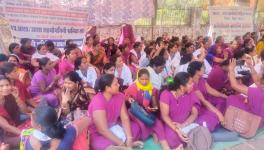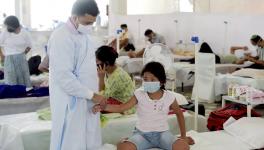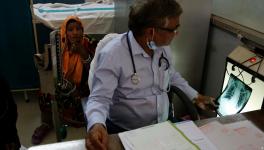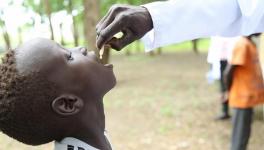Madagascar Plague Epidemic: Medieval Diseases in an Unequal World
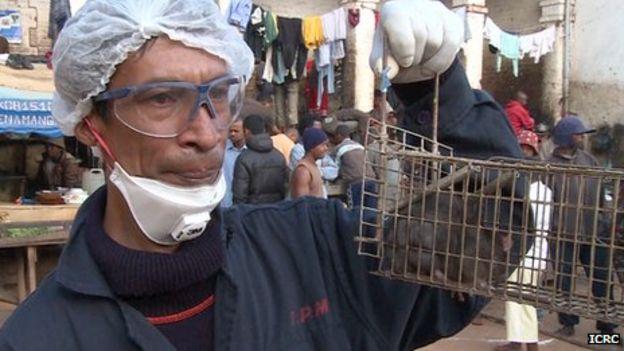
Image Courtesy: BBC
Since August this year, Madagascar has been gripped by a plague epidemic. The outbreak has claimed around 100 lives till date. Though Madagascar has been an endemic region for Bubonic plague, with few cases reported every year, this year’s outbreak is much more extensive. Plague is a disease caused by Yersinia Pestis, spread through rat flea. It is of three types: bubonic, pneumonic and septicemic. In medieval times plague was a much feared disease that killed millions in Europe.
According to External Situation Report No 6 of WHO, from 1 August to 24 October 2017, a total of 1309 suspected cases of plague, including 93 deaths (7%), were reported. Of these, 882 (67%) were clinically classified as pulmonary plague, and 221 (17%) were bubonic plague, 1 was septicaemic, and 186 were unspecified (further classification of cases is in process). It has also been noted that, 71 healthcare workers (with no deaths) have been affected.
Pneumonic plague which is at the heart of the epidemic is a virulent form of plague, which can be transmitted to other human beings through droplets (cough, etc). The incubation period is just a day, meaning that a person can acquire symptoms of the disease within 24 hours of contact with the source. However, pneumonic plague can be diagnosed and treated effectively. If untreated, it can progress to death.
The treatment of plague with antibiotics and supportive treatment is effective if provided early. Though vaccination is available, it is recommended only for high risk groups such as healthcare workers and personnel handling the bodies of dead.
WHO has warned that neighboring countries like Kenya, Ethiopia, South Africa, Mozambique, Tanzania, Reunion, Mauritius, Seychelles and Comoros should be on alert and step up their surveillance & preparedness measures. WHO has also said that the epidemic is weakening and the risk of international spread appears low. It has also advised countries globally against any restriction on travel or trade to Madagascar.
The recent outbreak in Madagascar comes as part of a periodic reminder of the health crisis being faced by the African nations, last being the Ebola epidemic of 2014. The regular outbreaks and health situation in African countries is a reflection of the socio-economic turmoil that has been haunting the continent.
Responses of developed countries to the outbreak point has been superficial and hypocritical, where the objective is to secure their own countries from the potential spread of plague, but not create a situation that would in fact stop the disease from originating.
A common impression is that plague is a disease of the medieval ages. What needs to be realized is that there is a large proportion of the world population that even today is forced to live in conditions that are similar to what obtained in the medieval ages. As long as these conditions exist, diseases, even medieval ones like the plague, will keep recurring.
Disclaimer: The views expressed here are the author's personal views, and do not necessarily represent the views of Newsclick.
Get the latest reports & analysis with people's perspective on Protests, movements & deep analytical videos, discussions of the current affairs in your Telegram app. Subscribe to NewsClick's Telegram channel & get Real-Time updates on stories, as they get published on our website.













